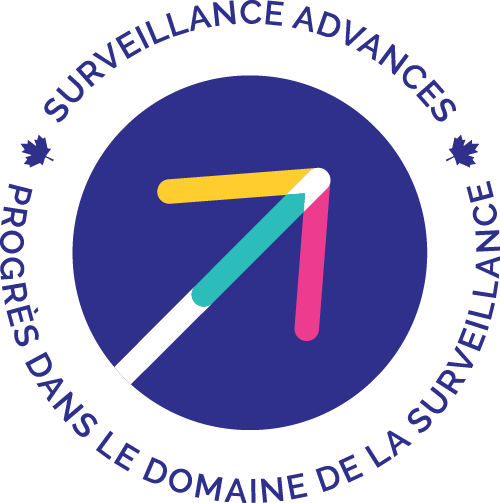
Hosted by: The Public Health Agency of Canada (PHAC)’s Data, Surveillance and Foresight Branch (DSFB) and National Collaborating Centre for Infectious Diseases (NCCID).
Date and time: June 24, 2025 | 1:00 to 2:00 Eastern Time / 12:00 to 1:00 Central Time
Language: English
Introduction
This webinar is the ninth seminar of the 2024-2025 Surveillance Advances season, “Novel Partnerships and Approaches for Mosquito Surveillance.” This presentation begins with a presentation by Dr. John Soghigian on public-academic collaboration. Then, Dr. Victoria Ng presents a citizen science approach to mosquito surveillance.
Synopsis
Presentation 1
Climate change and human-mediated movement is expanding the range of insects that can transmit, or vector, disease at unprecedented rates. This is particularly a problem for mosquitoes, which respond quickly to changes in climate. Many species are experiencing rapid range expansions, including problematic vectors of disease, such as the house mosquito (Culex pipiens) and the tiger mosquito (Aedes albopictus). To better understand mosquito diversity and changing distributions, the Soghigian Lab works with municipalities throughout Alberta to collect and identify mosquitoes. Through this partnership, the recent invasion of Culex pipiens to Alberta is being characterized to better understand the risk this mosquito plays to humans and other animals throughout the province.
Presentation 2
The Tiger Mosquito Citizen Science (TIMO-CS) study launched in 2024 and is led by the Public Health Agency of Canada (PHAC), in collaboration with Let’s Talk Science Outreach (LTS) at the University of Windsor and the Windsor-Essex County Health Unit (WECHU). In 2025, we expanded our collaboration to include the University of Guelph and the University of Calgary. The TIMO-CS study will complement routine mosquito surveillance in the Windsor-Essex region by encouraging residents to help identify the presence of the tiger mosquito. The presentation will describe the study objectives, the benefits of citizen science and accessible approaches to complement routine surveillance and the importance of collaboration across local, provincial and federal public health organisations, non-profit organisations and multiple academic institutions in citizen science surveillance.
Learning Objectives
Presentation 1
- Understand the recent range expansion of the mosquito Culex pipiens, and the challenges this mosquito poses to many municipalities.
- Determine how a partnership between public entities, such as municipalities, can be beneficial to both academics and those entities
Presentation 2
- Importance of exotic mosquitoes to public health in Canada
- Limitations of traditional surveillance
- Alternative surveillance approaches with benefits beyond data collection
Speakers
Dr. John Soghigian, Assistant Professor of Parasitology, PhD, University of Calgary
Dr. John Soghigian’s research focuses on the causes and consequences of parasite and vector diversity. He uses a range of genomic tools and evolutionary methods to understand why some vector arthropods are so problematic, while others – often their near relatives – are benign. John completed his PhD at Clark University in 2016, where he focused on coevolution and host-parasite associations in mosquitoes. He then completed postdoctoral training first at the Connecticut Agricultural Experiment Station, and then at North Carolina State University, where his research shifted towards using genomics to understand the evolutionary origins of species and phenotypes in arthropods of veterinary and medical importance. He joined the Faculty of Veterinary Medicine at the University of Calgary in June 2021.
Dr. Victoria Ng, Senior Scientist, PhD, Public Health Agency of Canada
Dr. Victoria Ng is an infectious disease epidemiologist and a Senior Scientist at the Public Health Agency of Canada. She completed her PhD in epidemiology at the Australian National University in 2010 and a Postdoctoral Fellowship at the University of Guelph from 2010 to 2012. Prior to joining the Public Health Agency in Canada in 2014, Dr. Ng worked for the Hospital for Sick Children and Public Health Ontario. Her expertise is in quantitative risk assessment, disease prioritization and statistical/mathematical modelling of infectious diseases, particularly the transmission and expansion of exotic mosquito-borne diseases and exotic mosquito species in Canada under current and projected climate change. Dr. Ng is passionate about using alternative surveillance approaches to complement traditional surveillance and the use of citizen science to engage communities and leverage resources to keep Canadians healthy.
Moderators
- Robert Sager, NCCID
Format
This seminar was held on Zoom. The presentation is around 30 minutes followed by approximately 15 minutes for a discussion and question period from attendees.
Access Instructions
All instructions for the seminar series will be posted on the Zoom registration page and will be emailed to all registrants prior to the event.
Past Webinars
Surveillance Advances launched in September 2023 with a discussion about the foundational concepts of public health surveillance and the future opportunities that lie ahead. Subsequent seminars featured topics related to health inequalities (seminar 2), data science (seminar 3), maternal and newborn health (seminar 4), and injury surveillance (seminar 5). For a complete list of seminars and to view their recordings, please visit the Surveillance Advances webcasts page
Accreditation Statement
Surveillance Advances is a self-approved group learning activity (Section 1) as defined by the Maintenance of Certification Program of the Royal College of Physicians and Surgeons of Canada. Surveillance Advances is also approved by the Council of Professional Experience for professional development hours for members of the Canadian Institute of Public Health Inspectors.

